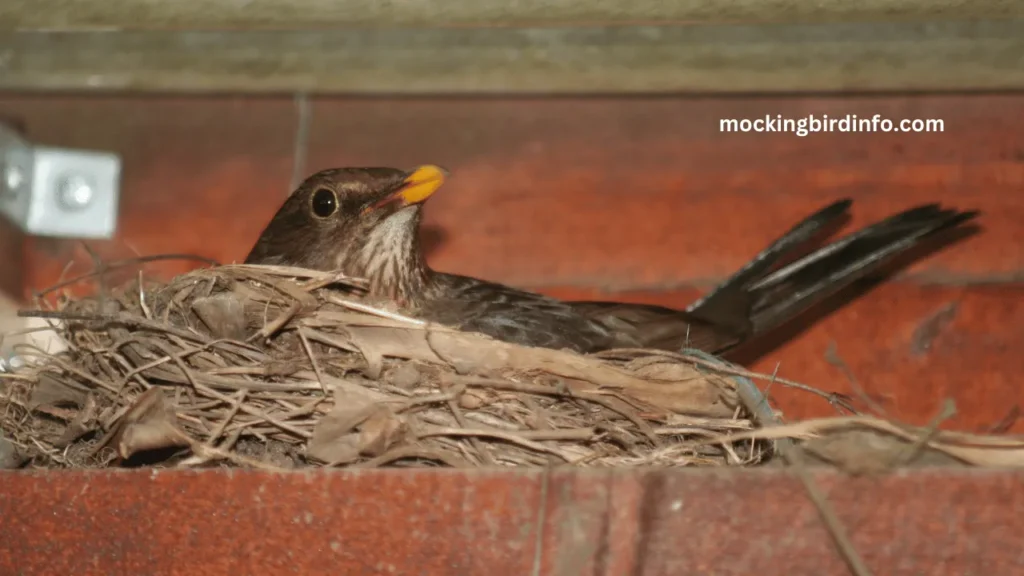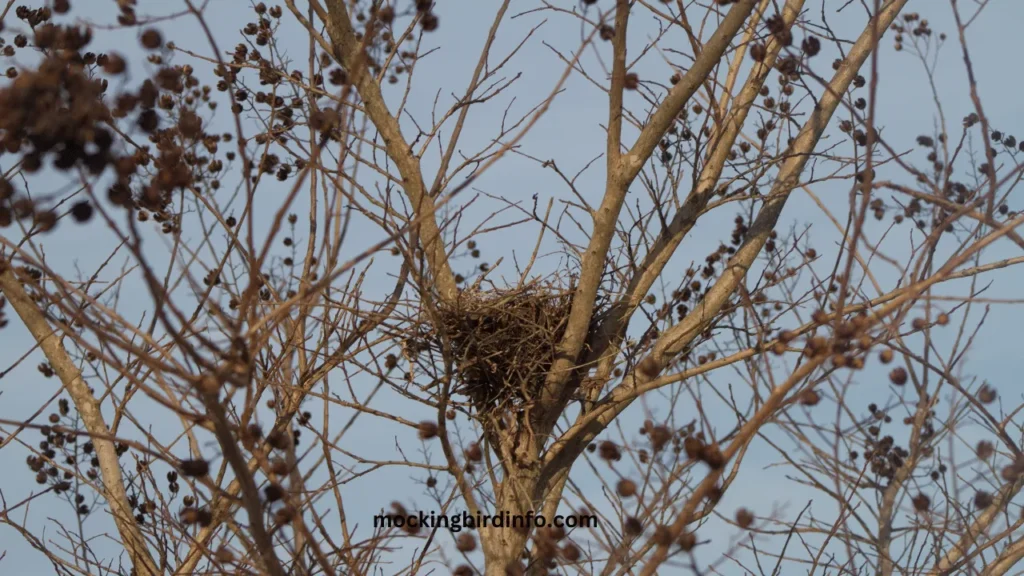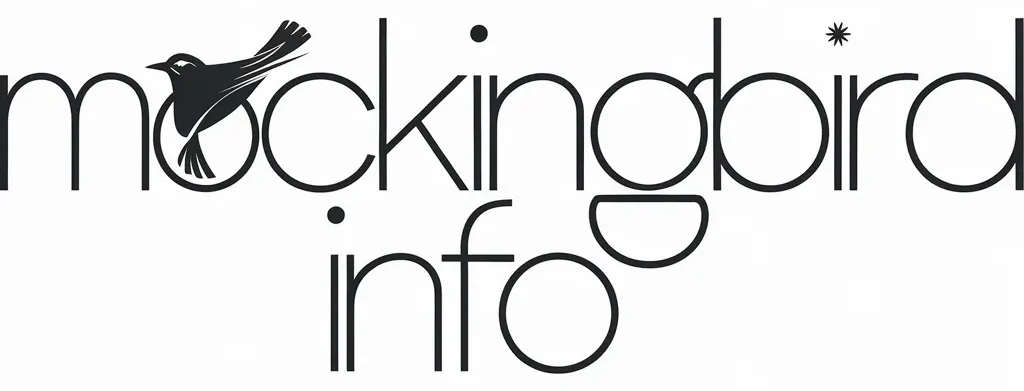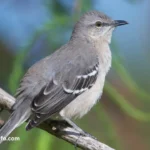The world of birds is filled with fascinating behaviors and unique nesting habits. Among these feathered creatures, mockingbirds stand out not only for their melodic songs but also for their protective and aggressive nature.
With an innate knack for imitating other birds’ calls and fiercely defending their territory, these birds embody both beauty and boldness. But a question often arises among bird watchers and enthusiasts: Do mockingbirds lay their eggs in other birds’ nests?
Understanding the true nesting behavior of mockingbirds is essential for clearing up misconceptions. While certain birds like cuckoos are notorious for their brood parasitism—laying their eggs in the nests of other species—mockingbirds have an entirely different approach.
This article will unravel the myths and provide a detailed look at how mockingbirds manage their nesting and breeding practices. Read on to explore the truth behind their nesting behaviors and learn what sets these birds apart from their avian counterparts.
By diving into the territorial nature, nesting habits, and the myths surrounding these vocal birds, we’ll reveal why mockingbirds deserve their reputation as staunch protectors of their own. Let’s journey into the world of mockingbirds and uncover the facts versus fiction about their egg-laying and nesting behavior.

Contents
- 1 1. Territorial Behavior
- 2 2. Nesting Habits
- 3 3. Misconceptions and Myths
- 4 4. Factors Influencing Nesting Behavior
- 5 5. Parental Care
- 6 Conclusion
- 7 FAQs
- 7.1 1. Do mockingbirds lay eggs in other birds’ nests?
- 7.2 2. Are mockingbirds aggressive when protecting their nest?
- 7.3 3. What materials do mockingbirds use for their nests?
- 7.4 4. How many eggs do mockingbirds typically lay?
- 7.5 5. Do both parents care for the young?
- 7.6 6. Are mockingbirds brood parasites?
1. Territorial Behavior
Mockingbirds are known for their highly territorial instincts, especially during breeding season. Their aggressive behavior ensures that no unwelcome visitor sets foot near their nesting site.
These birds will fearlessly dive-bomb intruders, including cats, squirrels, or even larger birds. Their sharp, relentless vocalizations act as a warning to anything or anyone that comes too close.
During the height of the breeding season, male mockingbirds can often be seen patrolling their territories, ready to drive away any competition. This protective instinct is so powerful that it cements their reputation as one of the most vigilant bird species in their natural habitats. Their goal is clear: protect their nest and young at all costs.
These birds’ behavioral adaptations ensure that their nests are safeguarded from potential threats, which is why it’s uncommon to find any other bird taking over a mockingbird’s nest. Their ability to fiercely guard their home highlights how different they are from brood parasites.
2. Nesting Habits
When it comes to building their nests, mockingbirds are nothing short of resourceful. They construct their nests with a mix of twigs, leaves, grass, and other natural materials, creating a sturdy base to support their eggs.
These nests are typically located in shrubs or trees, positioned at an average height of 3 to 10 feet to balance safety and accessibility. A female mockingbird usually lays three to five eggs, and the incubation period lasts about two weeks.
Once the eggs hatch, both parents play an active role in feeding and protecting the nestlings. This teamwork is critical for the survival of their young, ensuring they are well-fed and guarded from potential predators.
Mockingbirds exhibit an impressive level of parental dedication, with both males and females tirelessly working to keep the nest safe. This aspect of their nature reflects their strong family-oriented behavior—an instinct that would be unlikely if they relied on the nests of others for breeding.

3. Misconceptions and Myths
A common misconception is that mockingbirds, like some other bird species, might lay their eggs in the nests of other birds. However, mockingbirds do not engage in brood parasitism. Unlike the cunning strategies of cuckoos or cowbirds, which deceive other species into raising their young, mockingbirds focus solely on their own nest.
The notion that mockingbirds could take over another bird’s nest or lay their eggs elsewhere is a myth that likely stems from observing their competitive nature. While mockingbirds are indeed aggressive toward intruders, their aim is to defend their territory, not infiltrate another bird’s nest.
This behavior contrasts sharply with birds that engage in brood parasitism, making it essential to recognize the differences in nesting strategies across species. Mockingbirds’ self-reliance reinforces their unique identity in the bird world.
4. Factors Influencing Nesting Behavior
The quality of habitat plays a significant role in where mockingbirds choose to build their nests. They prefer locations with an ample supply of building materials and safe, hidden spots away from high human activity. Habitat loss or urban expansion can impact these nesting choices, forcing the birds to adapt by finding alternative sites.
Predation risk is another influential factor. The presence of potential nest predators such as snakes, raccoons, and larger birds of prey can drive mockingbirds to select more concealed or higher locations for their nests.
Climatic conditions, like temperature and seasonal rainfall, also impact their nesting behavior. Mockingbirds may delay laying eggs during extreme weather conditions to ensure better chances of survival for their young.
These factors combined illustrate how adaptive and resourceful mockingbirds are, showcasing their strategic approach to choosing safe and viable nesting sites.
5. Parental Care
Mockingbirds are devoted parents. Once the eggs hatch, the feeding responsibilities are shared, with both the male and female gathering insects and berries for the chicks. This joint effort not only nurtures the young but also ensures the nest’s defense against predators.
The first few weeks after hatching are critical. Mockingbirds can become extremely protective, taking turns to guard the nest while the other searches for food. The fledglings begin to venture out of the nest after about 12 days but remain under parental guidance and care until they become independent.
This strong focus on parental investment underscores the fact that mockingbirds rely on their own capabilities to nurture their young, contrasting sharply with birds that use other species to raise their offspring.
Conclusion
In conclusion, mockingbirds are fiercely independent and territorial birds that do not engage in laying eggs in other birds’ nests. Their protective nature, thorough nest-building practices, and shared parental responsibilities set them apart from birds known for brood parasitism.
Understanding the true nesting behavior of mockingbirds helps clear up misconceptions and highlights their role as devoted and vigilant parents. Addressing these myths is not only about understanding mockingbirds better but also about appreciating the diverse strategies that different bird species use for survival.
Conservation efforts to protect suitable habitats are crucial for supporting the natural behavior of these birds and ensuring their continued presence in our ecosystems.
Mockingbirds’ dedication to their young and territory serves as a reminder of their resilience and adaptability. Observing their commitment offers a deeper appreciation of how unique they are among birds, bringing to light their unwavering spirit in defending their own.
FAQs
1. Do mockingbirds lay eggs in other birds’ nests?
No, mockingbirds do not lay eggs in other birds’ nests; they build and maintain their own nests.
2. Are mockingbirds aggressive when protecting their nest?
Yes, they are very aggressive and will dive-bomb and vocalize to ward off threats.
3. What materials do mockingbirds use for their nests?
Mockingbirds use twigs, leaves, and grass to construct sturdy nests.
4. How many eggs do mockingbirds typically lay?
They usually lay between three to five eggs per clutch.
5. Do both parents care for the young?
Yes, both male and female mockingbirds share responsibilities in feeding and protecting their young.
6. Are mockingbirds brood parasites?
No, mockingbirds do not engage in brood parasitism; they care for their own offspring.








